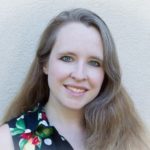 In Second Wave Positive Psychology, there is no light without darkness. From the ashes of tragedy or challenges, great meaning can emerge like a phoenix. Life presents difficulties or confronts with its finiteness, concurrently calling us to meaning. Answering the call to meaning can lead to resilience.
In Second Wave Positive Psychology, there is no light without darkness. From the ashes of tragedy or challenges, great meaning can emerge like a phoenix. Life presents difficulties or confronts with its finiteness, concurrently calling us to meaning. Answering the call to meaning can lead to resilience.
Dr. Laura Armstrong, Ph.D., C.Psych., is an Assistant Professor, Clinical Psychologist, and researcher at Saint Paul University in Ottawa, Canada, in the School of Counselling, Psychotherapy, and Spirituality. She also holds a Diplomate Clinician certification in Logotherapy from the Viktor Frankl Institute of Logotherapy.
Dr. Armstrong is the editor of two textbooks and the author of 31 published, in press, or submitted peer-reviewed book chapters and journal article manuscripts. She was also invited by the Ontario Ministry of Education to write a resilience brief for educators and community leaders working with children. Meaning-centred theory has now infiltrated the public education system!
In addition to invited public presentations or media interviews to enhance resilience and community mental health, Dr. Armstrong works clinically with children, adolescents, adults, couples, and families in her private practice, Tomorrow Me Psychological Services.
Dr. Armstrong is the founder of R.E.A.L. therapy. R.E.A.L. therapy combines Rational-Emotive, Attachment, and Logotherapy theory and practice within a Second Wave Positive Psychology framework. Grounded in R.E.A.L., she has developed a resilience-based mental health promotion program for school children called the D.R.E.A.M. (Developing Resilience through Emotions, Attitudes, and Meaning) program. This program has been funded by a Social Sciences and Humanities Council Insight Development Grant, as well as John Wells Spiritual Care awards from the Society for Pastoral Care and Counselling Research.
The D.R.E.A.M. program uses original music, games, artistic activities, and drama to teach skills for resilience. In its most recent adaptation, collaboratively developed with mental health practitioners, children, their parents, and teachers, the D.R.E.A.M. program was adapted to address the unique socio-emotional needs of intellectually gifted children, ages 6 to 12. Approximately 30% to 40% of gifted children experience mental illness compared to 20% of their non-gifted peers. Intellectually gifted children are more likely than non-gifted children to face bullying, social exclusion, perfectionism, and emotional, sensorial, and imaginational over-sensitivities that can put them at risk for concerns. In our research, a R.E.A.L. protocol has been found to be helpful in addressing these concerns.
From challenges, great meaning can arise if children have the tools and awareness to recognise it, allowing children to be resilient to mental health concerns. In the D.R.E.A.M. program, children are taught about challenging and positive emotional alarm bells as helpful indicators for unhelpful thoughts, learning about the world, or as indicators for moments in which they can mindfully experience joy or gratitude. The children learn how to challenge unhelpful thoughts through attitudinal change. They also learn socio-emotional literacy skills to build meaningful connections with others.
Further, in the program, children learn how to choose meaningful actions, problem-solve, and use creativity to make a difference in their homes, as well as how to make a difference at both local community and global levels. For example, gifted children often worry about mature real-world issues but can feel distressed when they perceive personal impotence in response to these issues. In the program, through creative activities, children learn how to choose a major real-world issue and problem-solve ways in which they can make a difference.
Dr. Armstrong has developed and validated a child meaning in life questionnaire called the Child Identity and Purpose questionnaire (Ch.I.P.) for children ages 6 to 12 (Armstrong, 2016; in The International Forum for Logotherapy). The current revised version of the measure is video-based, with each item presented online in a dramatized video clip to engage child attention and to allow early readers or children whose first reading language is not English to participate. Such a measure may be helpful for evaluating meaning-centred therapies with children and moving such therapies into the realm of mainstream evidence-based practice.
Currently, Dr. Armstrong’s Doctoral and Master’s thesis students are carrying out research using R.E.A.L. theory, the D.R.E.A.M. program, or the Ch.I.P. with children, adults, or families. When she conducted her own doctoral dissertation research, funded by over $300,000 in scholarships or student grants (including Canada Graduate Scholarships), Dr. Armstrong explored how meaningful youth engagement in structured extracurricular activities acted as a buffer to prevent suicidal ideation in those at risk, given rural dwelling, depressive thoughts, low self-esteem, or risk behaviours.
Dr. Armstrong’s work is most influenced by Drs. Viktor Frankl and Paul Wong. She has attended the INPM Summer Institute and regularly attends or presents at the INPM conferences. She would look forward to collaborating on research or writing projects with other INPM members.
In addition to research, clinical work, and teaching, Dr. Armstrong has developed a recent passion for Irish dancing. Her daughter took up the activity a few years ago and conveyed so much joy that mom, dad, and toddler brother were all inspired to become Irish dancers!
Dr. Armstrong also finds meaning in photography, church activities, song writing, and spending a great deal of quality time with her family, particularly outdoors.

 Meaning Conference 2025 will be the INPM’s first in-person conference with a virtual option after the pandemic.
Meaning Conference 2025 will be the INPM’s first in-person conference with a virtual option after the pandemic.